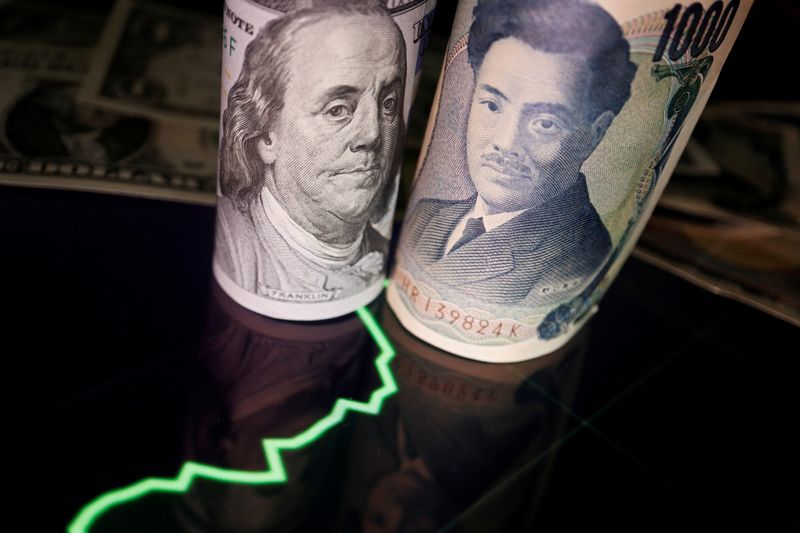By Chuck Mikolajczak and Herbert Lash
NEW YORK (Reuters) -The dollar index climbed on Monday, building on four straight weeks of gains, after the U.S. government avoided a shutdown and economic data again supported the view that the Federal Reserve will keep interest rates higher for a longer period of time.
U.S. manufacturing took a step further toward recovery in September as production picked up and employment rebounded, according to an Institute for Supply Management survey that also showed prices paid for inputs by factories falling considerably.
The U.S. Congress passed a stopgap funding bill late on Saturday with overwhelming Democratic support after Republican House Speaker Kevin McCarthy backed down from an earlier demand by his party’s hardliners for a partisan bill.
Treasury yields rose, with the benchmark 10-year note hitting 4.703%, as averting a government shutdown reduced demand for U.S. debt, while the data highlighted the economy’s resiliency despite the Fed’s target rate in restrictive territory.
“It’s the feeling that the U.S. economy can stomach higher interest rates for a little bit longer,” said Bipan Rai, North America head of FX strategy at CIBC Capital Markets in Toronto.
“Implicitly it also means that the Fed might not be so quick to cut rates next year either,” he said.
The dollar index rose 0.62% to 106.89, with the euro down 0.75% to $1.0491.
The Japanese yen weakened 0.31% versus the greenback at 149.77, after falling to 149.90.
“You are still seeing the U.S. growth story is much better than abroad and that is probably going to keep that interest rate differential widely in its favor,” said Edward Moya, senior market analyst at Oanda in New York.
Fed Governor Michelle Bowman said she remained willing to support another increase in the central bank’s policy interest rate at a future meeting if incoming data showed progress on inflation was stalling or proceeding too slowly.
Investors have been closely watching for signs of intervention in the Japanese currency by the Bank of Japan (BOJ).
The yen has come under pressure against the dollar as the BOJ remains a dovish outlier among global central banks, especially since the Fed began its aggressive rate-hike cycle in March 2022.
A summary of opinions at the Bank of Japan’s September meeting showed more policymakers discussed the prospects of an eventual exit from ultra-loose policy, while the central bank also said it would conduct additional bond buying operations, as it seeks to slow a rise in yields after the benchmark reached its highest in a decade.
Japan’s Finance Minister Shunichi Suzuki said authorities were closely watching FX moves with a “strong sense of urgency” as it neared the 150 mark, but declined to comment on whether intervention was a possibility at this point.



